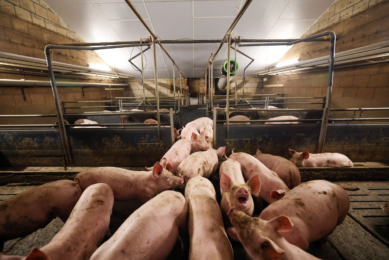Taiwan blocks ‘tainted’ US pork
The Taiwanese Department of Health (DOH) has blocked imports of over 24 metric tons of US pork found to contain a feed additive that is currently banned locally.
United States and Japan, allow the growth-enhancing rectopamine to be used on
livestock, although Taiwan bans it. Cheng Hui-wen, head of the DOH Bureau of
Food Safety, assured that no US pork containing rectopamine had entered Taiwan,
dismissing allegations that the health authorities had tried to cover up the
results of drug test on the imports.
Induce weight
gain
Rectopamine can induce weight gain and boost the ratio of
muscle to fat in livestock but residue of the substance can have negative
effects, such as causing palpitations, on people. The drug is illegal in Taiwan,
and most legitimate pig farmers in the country do not feed their animals the
drug.
Low residue levels
The two banned pork
shipments were detected to contain rectopamine residue of 0.15 mg/kg and 0.32
mg/kg, respectively, on July 11 when they were awaiting customs clearance, Cheng
said. The shipments, weighing 1.3 and 23 metric tons respectively, were imported
by K&K Foods Inc., the official said. The US and Japanese standards for
maximum rectopamine residue is 50 mg/kg and 10 mg/kg, respectively, Cheng said.
Cheng stressed that even by the Japanese standard, the residue levels in the two
banned shipments were very low.
People First Party legislators Lin
Hui-kuang, Liu Wen-hsiung and Tsai Sheng-chia said the DOH should investigate
immediately to see whether any imported pork containing rectopamine had made its
way to local restaurnants.











